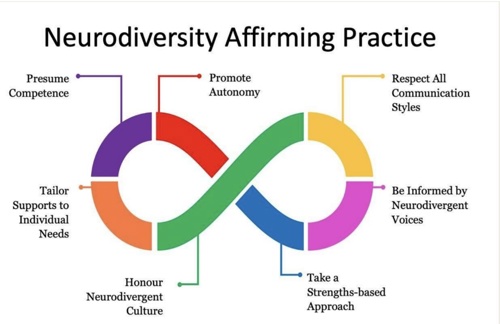
As ocular and vision complications are linked with autism spectrum disorder, down syndrome, developmental disability, cerebral palsy, and communication disorders, it makes sense for optometrists to make their practices friendly to these populations. Specific action steps on how to accomplish this during each patient touchpoint were provided during the lecture “Eye Care for Everyone: Approaches to Care for Intellectual Disability.” The lecture took place yesterday at
9 a.m., and was delivered by Katie Connolly, OD, FAAO, and Samantha Krueger, OD, MS, FAAO.
Drs. Connolly and Krueger say they hope their lecture highlighted the importance of providing eye care to individuals with intellectual disabilities. They add that, following this lecture, practitioners should feel confident in exam modifications they can use to successfully see any patient.
Appointment scheduling
When booking the appointment, it was suggested that front desk staff ask every patient their preferred form of communication (e.g., using photos, writing, gestures etc.); their mobility needs (if any); and their best time of day for a comprehensive exam; among other considerations. For pediatric patients, inquiring with their caregiver about a favorite color, show, or hobby can enable the practice to have any one of these items at the ready to facilitate the appointment.
Presenting for the appointment
When it comes to the physical office itself, it was recommended ODs and staff make the interior accessible to the special needs community by having wide doorways and hallways, automatic doors, ramps, and light fixtures that don’t stick out.
Additionally, this part of the lecture included a discussion on the importance of providing patient intake forms that are brief and in large-print size, with a staff member at the ready to assist the patient, if needed.
Exam room
Once the patient enters the exam room, it was suggested the optometrist ask again about the patient’s preferred form of communication, and that the exam room chair be easy to slide out of the way, should the patient be wheelchair bound. Further, it was recommended handheld diagnostic devices be considered for easy maneuvering.
Additional thoughts
The lecture also included discussions on the importance of treating patients who have special needs with respect, which includes not calling a patient a “kid,” if they’re an adult; and speaking slower, not louder. OM
Advice for Academy attendees
"AAO serves as a wonderful opportunity to expand your optometric practice through lectures, workshops, and networking," Dr. Krueger said. "Be sure to take advantage of all that AAO has to offer!"



